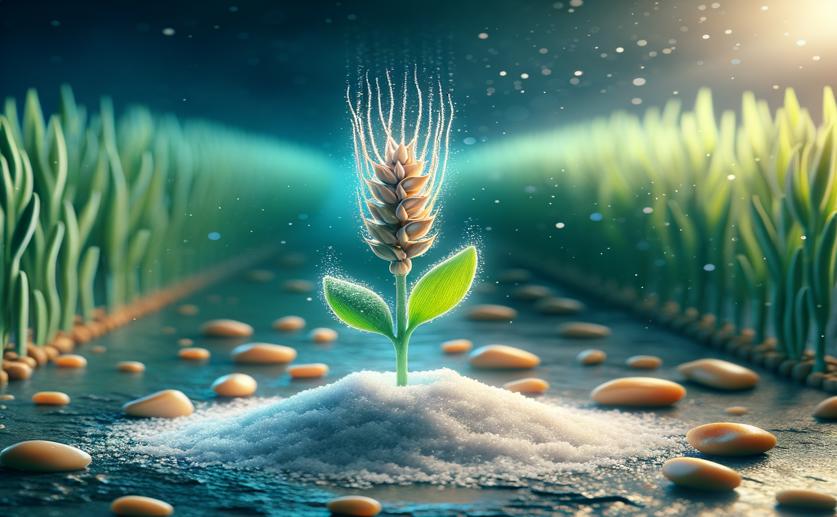
GABA's Positive Effects on Wheat Seedling Growth and Health Under Salt Stress
Greg Howard
27th June, 2024

Image Source: Natural Science News, 2024
Key Findings
- The study from Helwan University in Egypt found that applying GABA to wheat seedlings helps them grow better under salt stress
- GABA-treated wheat seedlings showed improved root and shoot growth compared to untreated seedlings under saline conditions
- GABA helps wheat plants manage the ionic and osmotic challenges of salt stress, promoting healthier root systems and overall plant health
References
Main Study
1) Ameliorative impacts of gamma-aminobutyric acid (GABA) on seedling growth, physiological biomarkers, and gene expression in eight wheat (Triticum aestivum L.) cultivars under salt stress
Published 26th June, 2024
https://doi.org/10.1186/s12870-024-05264-5
Related Studies
2) Plant hormones and neurotransmitter interactions mediate antioxidant defenses under induced oxidative stress in plants.
3) Salt sensitivity in wheat : a case for specific ion toxicity.
Journal: Plant physiology, Issue: Vol 80, Issue 3, Mar 1986
4) The impact of stress combination on reproductive processes in crops.



 26th June, 2024 | Jenn Hoskins
26th June, 2024 | Jenn Hoskins